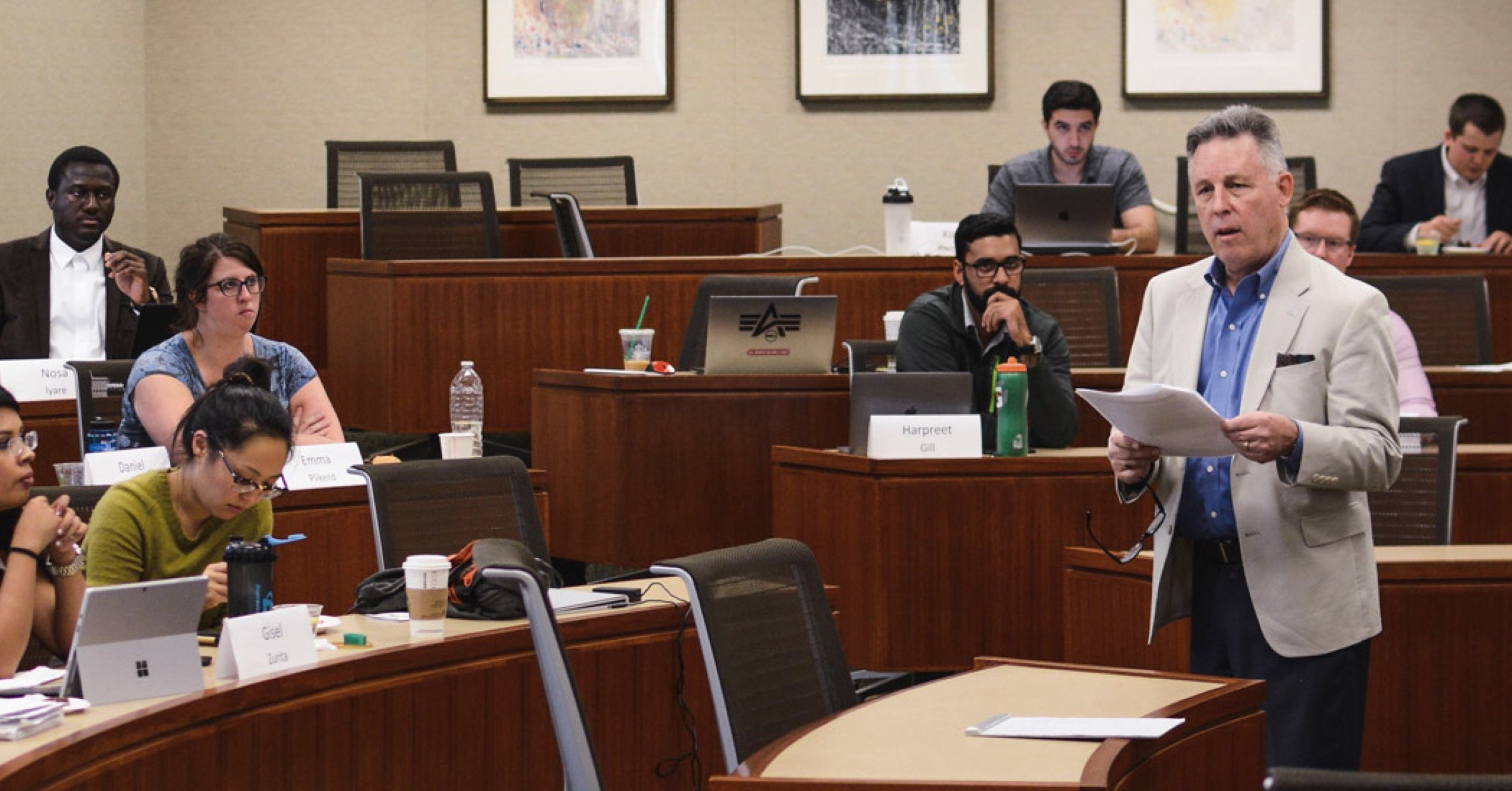The immediate impact of the COVID-19 lockdowns for most cities across the US and the world led to decreased greenhouse gas emissions due to fewer cars on the roads. Lockdowns also put the spotlight on much-needed changes in the way we conduct business. What have the implications of COVID-19 been for our environment and sustainable business practices, and what opportunities will come from this?
We explored these questions during a recent installment of our Kogod on COVID webinar series, where we interviewed sustainability management professor David Bartlett. During the webinar, we learned about how the use of personal protective equipment—including disposable masks, gloves, and disinfecting wipes—contributes to waste; whether the noticeable decrease in greenhouse gas emissions back in March, April, and May has remained or risen to pre-pandemic levels; and how businesses are maintaining sustainable practices—and if sustainable business models are more in demand now than ever before.
PPE and Single-Use Plastics
“I don’t think that we have any data yet, but it is safe to say that the pandemic led to an increase in single-use plastics,” says Bartlett. “The concern for sanitization and hygiene trumped concern for the environment.”
Unfortunately, any hope that less travel and fewer greenhouse gas emissions might counteract the increased generation of waste due to the use of disposable masks and gloves was premature.
“People estimate that there was a 17 percent decrease in greenhouse gas emissions from spring 2019 and spring 2020, but by mid-summer, emissions returned to pre-pandemic levels,” says Bartlett. “There was no silver lining to this story.”
Mitigating Waste
However, there have been some glimmers of hope when it comes to new technologies and businesses that function more conscientiously. “COVID-19 exacerbated the plastics issue but also lends some impetus to the development of innovative technology, business practices, and recycling that might mitigate the issue,” says Bartlett.
Many of Kogod’s sustainability students are invested in plastic waste reduction. “These students are researching technology systems that sweep over large oceanic regions and collect floating plastics, and that’s terrific,” adds Bartlett.
The pandemic also highlights the need for more businesses, regardless of their industry, to incorporate sustainable practices into their work, whether through sustainable packaging, incentives for customers to return used packaging, or even by upcycling fabrics and materials to provide face coverings.
“A crisis of this magnitude opens up space for innovative, agile, small, and medium start-up companies to come up with new ways to introduce products and services,” says Bartlett.
Investing in Sustainability
Another push toward more sustainable practices comes from the investing side of business. MS in sustainability management students have been looking into sustainable investing and how to make it attractive to ordinary investors who make decisions solely based on return.
“JP Morgan undertook a survey that was published in July which asked 50 global investors what the impact of COVID-19 is on their investments, in reference to sustainability financing,” says Bartlett. “Seventy percent responded that COVID-19 will likely accelerate the momentum of sustainability investing.”
Bartlett also predicts a broader movement toward smart cities and urban planning in the future and points to the sustainability management program’s project on vertical farming in Stockholm and DC.
“These self-contained, state-of-the-art farms grow local produce in close proximity to the target market, drastically shortening the transport distance. Vacant office buildings can house these farms as a means of urban renewal,” says Bartlett. “In a terrible situation, certain opportunities can arise in terms of sustainability.”
Predictions for the course of sustainable business models sound promising, but only time will tell how cities and organizations will adapt.
Watch David’s full interview, and check out the full Kogod on COVID playlist, where our expert faculty discuss how the pandemic is affecting women business owners, consumerism, the auto industry, and more.
